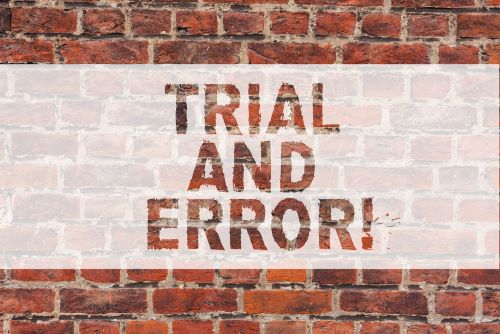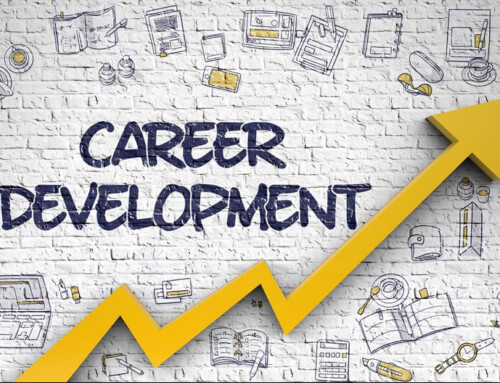Contrary to popular theory, failure is not the last stop in a journey but is merely a step toward success. Known as a “comfort zone,” people have an area to cocoon to protect themselves from rejection, but most importantly, failure. Unfortunately, this comfort zone will hinder success if the fear of failure is not addressed and overcome. In fact, in sports, the fear of failure (also known as the fear of success) is such a problem that hinders performance that mental toughness coaches work with athletes to boost confidence and quickly regain composure to minimize the impact of challenges encountered when in actual competition.
Mental toughness coaches look for cues that signify comfort zones, such as:
- Inconsistency in performing skills that should be routine.
- Performing well in practice but unable to repeat routine skills when stressed by competition.
- Avoiding risks such as protecting an existing score or not being willing to do more complex skills in competition.
- Letting outside distractions such as hecklers and nay-sayers play head games that undermine confidence.
- Allowing emotions to control behavior after setbacks.
If these fear of failure behaviors sound like experiences you have had in the workplace or have witnessed with your employees, read on. How a candidate answers the question, ‘Tell me about a time you failed?’ can reveal attitudes about failure and if they can learn and push through failure. But this alone isn’t enough to see how workers perform when in the hot seat.
Success is what everyone, every organization desires. After all, this is what keeps everything running for now and years to come. Naturally, success generates significant recognition, praise, and positive reinforcement. Positive reinforcement engages a workforce, improves productivity, limits employee churn, and enhances morale. 71% of highly engaged organizations recognize employees for a job well done. (1)
Moreover, praise is highly desired by employees. A survey by OfficeVibe analyzed 1,200,000 survey answers from tens of thousands of employees in over 150 countries and found: (2)
- 83% of employees find praise more valuable than a gift.
- 83% of employees appreciate receiving feedback, whether positive or negative.
- 72% of workers receive praise less than once a week.
- 63% of employees feel they don’t get enough praise.
Additional data support that praise and recognition have a compelling impact in the workplace and employees crave more:
- 69% of the employees said they would work harder if they felt better appreciated (3)
- 58% of employees say employee recognition is how leaders could improve employee engagement.
- 5% of employees want to receive more public recognition from their managers. (4)
Organizations that understand the power of recognition connect it with far more than employee performance and job satisfaction. Recognition can reinforce a sense of meaning and purpose. Gallup found that 74% of those who receive praise also strongly agree that they ‘have the feeling that what [they are] doing at work is valuable and useful.'” (5)
While it’s clear that praise and recognition are essential components to worker satisfaction, failure, unfortunately, is often considered a curse instead of a catalyst for change and growth. However, failure is part of the human condition. Mistakes will happen, and risks are necessary to explore, grow, and learn.
_________________________________
Encouragement after failure is more
essential than a day of praise after success.
-unknown
_________________________________
How can you encourage employees after failure and still have an engaging, productive workplace that fosters a culture with purpose and meaning for all workers? Here are a few strategies:
- Minimize the Fear of Failure
Whether the failure is minor or significant, everyone will make a mistake or fail at some point, including leadership. Employees shouldn’t fear taking a risk or trying something new because it might fail or because errors might happen. It creates a positive culture where failure can be discussed and allows everyone to be creative and learn from one another. This failure can help build confidence and aid in faster emotional recovery.Albert Einstein was infamous for his commentary on the intimate relationship between failure and success. For example:- I have tried it 99 times and failed, but on the 100th try came success.
- Anyone who has never made a mistake has never tried anything new.
- You never fail anything until you stop trying.
- The fact you failed does not define you as a failure. It just means you have not succeeded yet.
- Failure is success in progress.
- To succeed, your desire for success should be greater than your fear of failure.
- Champion Mistakes
Whether it is a typo caught before it goes to print production, a component that needs to go back to production for proper fabrication, a supplier that delivered a similar product but not exactly what was ordered, or some other issue reward workers who catch errors. Little details can easily be missed and often cost organizations a few dollars here or there. However, a few dollars here or there can add up quickly, customer service complaints can be mitigated, support time can be reduced, and vendor trust can be enhanced when issues are addressed BEFORE they become major problems. Recognize employees who spot issues before they impact stakeholders…and the bottom line. - Create a Culture that Celebrates Failures
Risk-taking workers willing to put in the extra effort and push themselves outside of their comfort zones deserve recognition, even if they fail. Do you think Tiger Woods, Michael Jordan, Serena Williams, or any other great athlete was excellent the first time they participated in golf, basketball, or tennis? Of course not. They failed many times, but they kept trying and fine-tuning both their physical talents and mental endurance. Absolute perfection is elusive, and even those perceived as being at the top of their sport, profession, or career… make mistakes. As hockey great Wayne Gretzky has been quoted, “You miss 100 percent of the shots you never take.”The key is converting failure into a steppingstone for success is to learn from it, refine the skills that were lacking, perhaps take things in smaller bites the next time, and move on. - Prioritize Innovation, Productivity, and Growth
No organization can be competitive, remain highly productive, and grow if there isn’t a culture that embraces new ideas or is willing to take calculated risks. Some ideas and risks may seem reasonable on paper but fall short of their objectives when implemented. In other cases, testing (such as in marketing, production, research, or other methodology) may be designed to fail to yield specific results to identify problems, refine details, and improve the overall final product. Regardless of the intent and outcome, failure evaluation should be considered based on innovation, productivity, growth, and results learned because of hypothesis testing. - Share and Discuss Failures
Every mistake and failure are a learning lesson. Take these as opportunities to analyze the situation objectively, and uncover:- What was the original purpose or what was trying to be done?
- Why was this being done? (Provide insight into the rationale for why things were implemented, the change was made, the test was run, etc.)
- Were there mistakes or risks that could have been prevented or mitigated? If yes, what actions or suggestions should be taken to avoid the occurrence in the future?
- Describe what was done. Were there any measures, tracking methods, or other methodology that would have allowed monitoring to mitigate or assess failure vs. success? If yes, what were these? Would you add any others? If not, what would you do in retrospect?
- Who else could or should have been involved? Should they have been involved earlier? Do you think this could have changed the outcome?
- What do you think is the takeaway or valuable learning experience from this mistake or failure? If you had to do the task over again, what would you have done differently? Do you think it could have been done differently with an alternate outcome?
- What feedback or discussion can others offer that might add different perspectives, insight, etc., for everyone to learn and grow?
- Encourage after Disappointment
Robert Kennedy is quoted as saying, “Only those who dare to fail greatly can ever achieve greatly.” What’s he implying here? That failure isn’t just part of life; it’s also part of what makes the greatest successes possible. Encouragement can be as simple as:- Showing empathy,
- Providing kind, valuable, and positive feedback,
- Collaborating as a team (e.g., brainstorming, motivating each other, sharing resources and workloads, etc.),
- Demonstrating appreciation for new ideas, hard work, the risk taken, etc.,
- Boosting confidence through reminders of work done well in the past,
- Gaining a new perspective and shifting away from negative thoughts and emotions,
- Keeping hecklers and nay-sayers in check,
- Acknowledging the discomfort by taking smaller steps next time.
Failure is an inextricable part of learning. If people don’t fail, they will challenge themselves to venture beyond their comfort zones and realize they’re stronger and smarter because they failed. Organizations don’t have to develop intentional cultures and processes designed to fail; they just need not to be afraid of failure. Once the fear of failure is lifted, people will feel free to innovate and create.
Discover more inspiring ideas for exciting experiences that boost morale and engage your people. Contact Gavel International for details.
_____________________________________
SOURCES:
- https://blog.bonus.ly/the-state-of-employee-engagement-2019
- https://officevibe.com/guides/state-employee-engagement
- http://blog.socialcast.com/e2sday-the-power-of-recognition-in-the-enterprise/
- https://www.quantumworkplace.com/recognition-in-the-workplace-secrets-stats
- https://www.gallup.com/workplace/285674/improve-employee-engagement-workplace.aspx
This article was last updated on June 10, 2025
- User-Generated Content in Marketing Wins Audience Trust - September 15, 2025
- 7 Ways to Elevate Culinary Experiences at Corporate Events - September 1, 2025
- 4 Reasons Why Corporate Training Programs Are Worth the Investment - August 4, 2025






